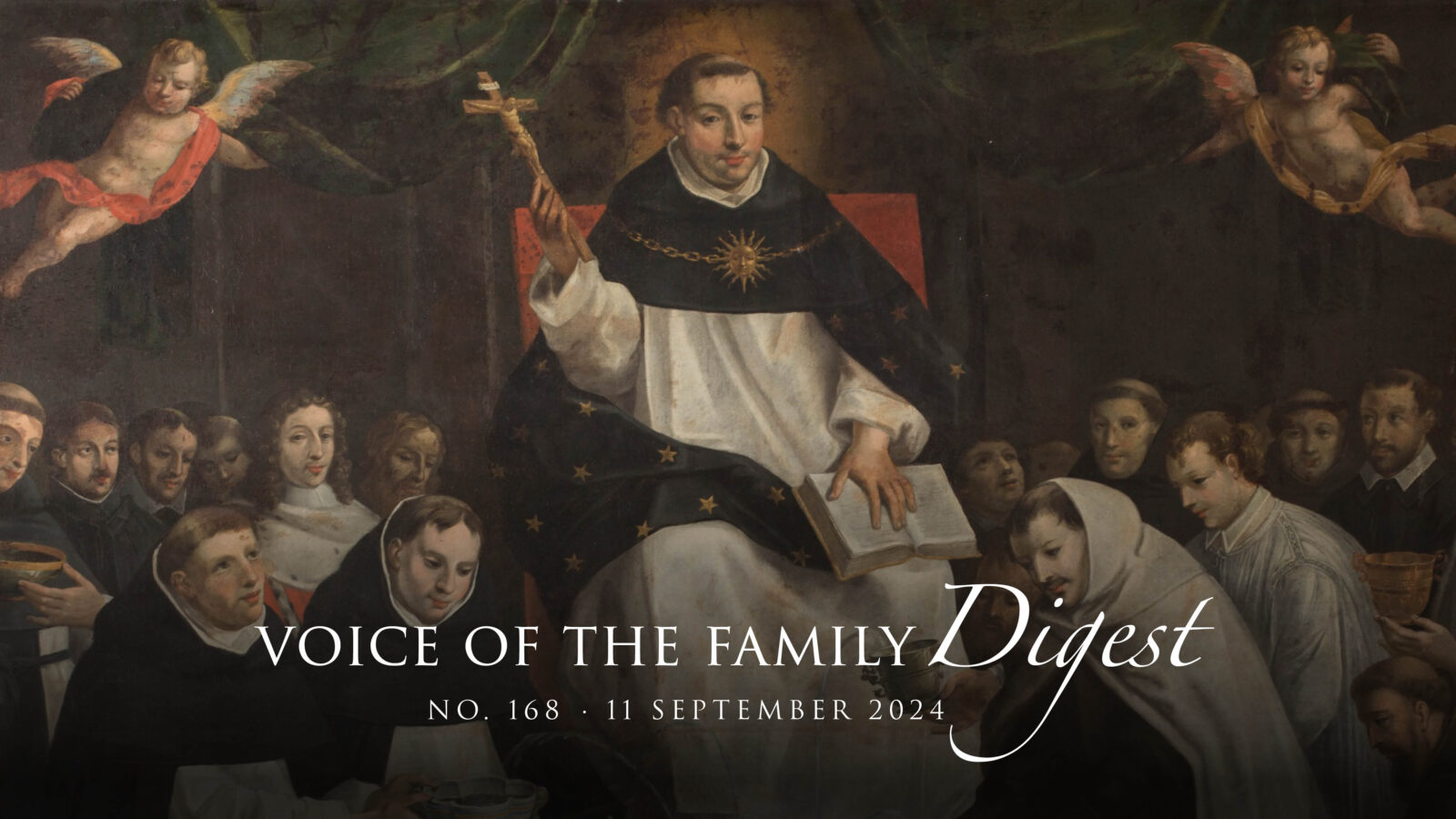Loving our neighbour: sermon on the seventeenth Sunday after Pentecost
By a Dominican Friar | 11 September 2024

“This is the greatest and the first commandment. And the second is like to this.”
The first and greatest commandment is to love God with all our heart. We call it a commandment, and it is: but at the same time it’s also an invitation. It’s an invitation to love the infinite Being who loves us, who alone can satisfy our heart’s desire: the Blessed Trinity. It’s because we have so good a commandment that we can say, in the words of the gradual, “Blessed is the nation whose God is the Lord.”
It’s true that down the ages some of God’s people turned their hearts from the true God toward false ones, falling into idolatry. That’s why Scripture also expresses this same commandment or invitation as a prohibition: “I am the Lord your God: you shall have no other gods but me.” Idolatry in the strict sense isn’t very common today, ever since Jesus Christ broke the power of the devil by dying on the Cross. Yet even Christians can sometimes slip into offences against the first commandment: anything superstitious, like wearing a lucky charm or going to fortune tellers, even for fun, without really believing it, is still a sin. It goes against the exclusive love that God demands for Himself, by dividing a person’s heart in two.
But as well as instructing us about the first and greatest commandment, our Lord also tells us that the second commandment is similar to the first. That may seem surprising. It’s one thing, we might think, to be commanded to love an infinitely perfect being, who loves us from eternity and who made us to be with Him; it’s quite another to have to love our neighbour, who is a finite, sinful person like ourselves, and who may sometimes wrong us or simply annoy us. Yet Jesus says these commands are alike, and so they must be. But how?
It’s because loving our neighbour rightly means desiring him to love God with all his heart. It was said of St Thomas Aquinas that he was so simple-hearted that he used weep over the sins of other people when he heard about them, as if they had been his own sins. He knew that charity for our neighbour can never mean being indifferent to his sins. We can ask St Thomas to obtain for us a tender charity like his own.
But our Lord knows that all this is hard for human nature. I think that this is why He proceeds to ask the Pharisees the question about who they think the Messiah will be: “what think you of Christ? Whose son is he?” It’s a way to get them to see that the Old Testament foretold the incarnation. The Pharisees were aware that the Messiah would be a son, that is, a descendant of King David. And our Lord was indeed a descendant of David, both legally, because St Joseph was of the house of David, as we read in St Matthew’s gospel, and physically, because our Lady was descended from David; many people think that the genealogy of Christ in St Luke’s gospel traces Jesus’s ancestors through Mary. But then He’s inviting the Pharisees to see something that they had overlooked, that the Messiah was to be not only David’s son but also his “Lord”. How can both these things be true? Only because Jesus is both God and man, the Word made flesh.
But what has this to do with the two commandments of love? One of the many reasons for the incarnation was precisely to make it easier for us to love both God and neighbour. It’s easier for us to love God than it was for the Jews, because He has come to us. He is now God with us. So great is His wish for our friendship, that He even remains with us, in the most holy sacrament of the altar.
But it’s also easier for us to love our neighbour than it used to be, now that we know our neighbour is called to be part of Christ. How do I mean, part of Christ? I mean, part of His body, the Church. At the moment our neighbour may be a blasphemer, or heartless, or unchaste; but he or she is called to be one with us in the mystical body of Christ.
So, as St Paul says, let us “support” each other “in charity”, not only in the sense of “put up with each other” but also in the sense of “assist each other toward heaven”. Let us love each other, because He first loved us.
